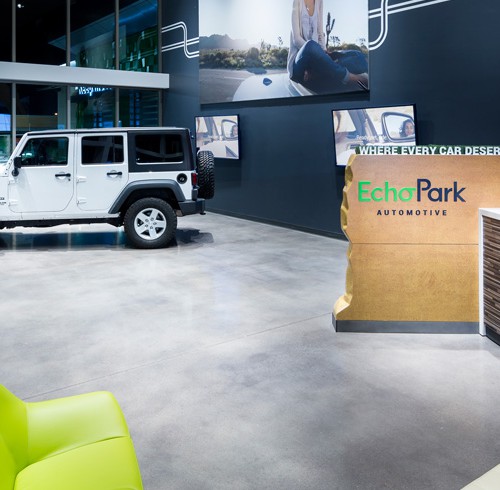Hiring Millennials To Sell To Millennials Is A Challenge In Retail Automotive

Working for a dealership is economically & ideologically very challenging for millennials (the generation loosely defined as those with birth years between the early 1980s to the early 2000s). Here’s some advice on how to recruit and retain this paradoxical generation.
Recent news has made it clear: retail automotive wants a bigger piece of the millennial shopper and employee pie. As millennials gain in buying power and percentage of national employment, they will inevitability lose their mystique and simply become our nation’s primary consumers and workers. The question at hand is does retail automotive have what it takes to create a financially stable and rewarding career path for millennial workers? Or, will failure to adapt be crippling for the industry as we know it?
New York Times contributor Steven Rattner recently outlined the financial outlook for millennials in “We’re Making Life Too Hard for Millennials.†In a word: #notgood.
According to Rattner’s article, despite having the highest percentage of bachelor’s degrees in history, millennials’ earnings are on average $3,472 less than the same age group’s earnings in 1980, accounting for inflation. While millennials are making less, they also owe more. According to the Federal Reserve and illustrated in this Goldman Sachs infographic, the mean student loan balance for 25 year olds was $20,926 in 2013.
With bleak debt to income ratios, fewer millennials are positioned to purchase a home and are therefore renting. CNBC recently reported that renting in the U.S. has risen to capture 30.2 percent of monthly income. In markets like LA, it is as high as 50 percent.
With mounting financial pressures, it’s only logical millennials would flock to jobs that replete their woeful bank accounts, right? Not quite.
According to Pew Research Center, the cohort places less value on a high-paying job than an enjoyable, fulfilling one. Millennials have been touted as a generation the holds social responsibility, transparency, and innovation in high regard; all qualities that traditional automotive retailers are increasingly being called out upon by consumers.

Adam Shiflett, senior marketing director at DrivingSales, offered his interpretation of millennials’ resolute value-focus, “Social media plays an increasing role in the development of and adherence to personal image,†said Shiflett. “Digital natives face a greater fear of hypocrisy if their professional life doesn’t align with their values.†He calls this dilemma ‘social media shame.’
Employers nationwide will struggle to strike the balance between tapping into young assets by aligning business with millennial values and providing economic security for the poor, yet educated, class.
Meet Chris Butsch; he went to college, rents an overpriced downtown apartment with two roommates, and recently quit his high paying, high-stress, IT project management job to travel for a while and freelance. Butsch is your stereotypical millennial, except unlike the majority of his peers, he’s actually attracted to retail automotive.
Butsch said, “In my junior year of college, I struck a deal with my father that if I graduated a semester early, he’d cover half the cost of a new car. With my savings from odd tech jobs in college, I was looking at everything from muscle cars to used luxury sedans.
“I knew I wanted a car by the summer, so like a student who hadn’t gone to class before the final, I began gathering resources and cramming to become a car expert as soon as possible,” Butsch continued.
“Then I began my test drives. The Mercedes C300 was too monochromatic inside. The Camaro lurched in the corners. The BMW had a surprisingly harsh ride. In all, I test drove 22 cars before settling on the best all-rounder: the ’08 Lexus IS 350. By then, I was known around my fraternity as the car expert. Soon, friends were asking car-buying advice, and then friends of friends, and friends of friends of friends,” Butsch said.
Butsch might sound like an enthusiast, but he has something that many dealerships don’t: a reputation of trust and expertise to guide a shopper through their car buying experience.
In his last job as an implementation consultant, Butsch was among around 9,000 employees with an average age of 29. He says his previous employer got something right in attracting fresh millennial talent, “They do it with a high starting salary, a respectable title, and the prestige of working for a big, powerful company.â€
He believes dealerships can emulate this strategy by offering a comparatively higher salary.
In terms of target majors, he says it wouldn’t be worth going after engineers. “Humanities and liberal arts majors are often more sociable in college and command far less of a starting salary, given the lack of opportunities in their fields. So they’d be a good recruiting target to fill sales roles,†he said.
Butsch urges dealerships to abandon the stereotypical car salesman persona beginning with the image portrayed in an appropriate title. “I’d go with Automotive Consultant,†he says. “Consultant is an attractive buzzword for millennials, as it implies subject matter expertise and the wisdom to consult for another entity.â€
Lastly, Butsch says prestige will draw the next generation of dealership staff and he resolves it begins with manufacturer intervention. He admitted his knowledge of dealership training was limited, but offered a thought, “If millennials could train at BMW for 3 months prior to working at a dealership and become certified BMW Automotive Consultants, that sounds much more attractive than ‘I was an English major so now I sling Bimmers.’â€
As millennials move to positions of buying power and make up a majority of the labor force, dealerships will need to adjust their business models to attract and keep the next generation of workers. Doing this will require dealerships to analyze their investments in human capital and choose wisely to strike the equilibrium between traditional compensation and the millennial-driven standards for workplace satisfaction and longevity: cultures of constant education and growth, innovative practices, social responsibility and more.









Warning: count(): Parameter must be an array or an object that implements Countable in /home/pg4b1yzvrqqo/domains/test.drivingsalesnews.com/html/wp-includes/class-wp-comment-query.php on line 399